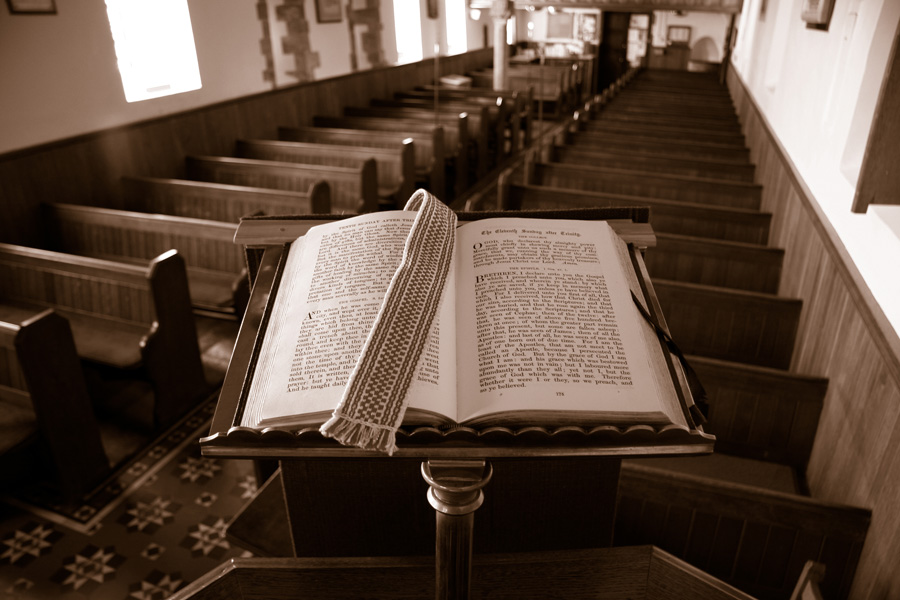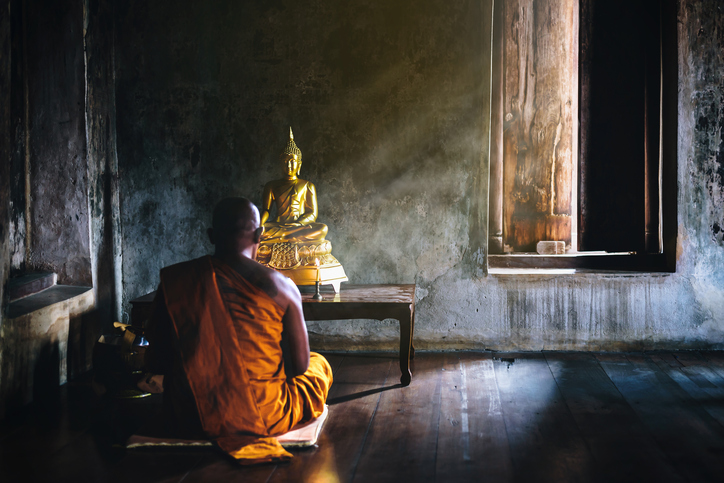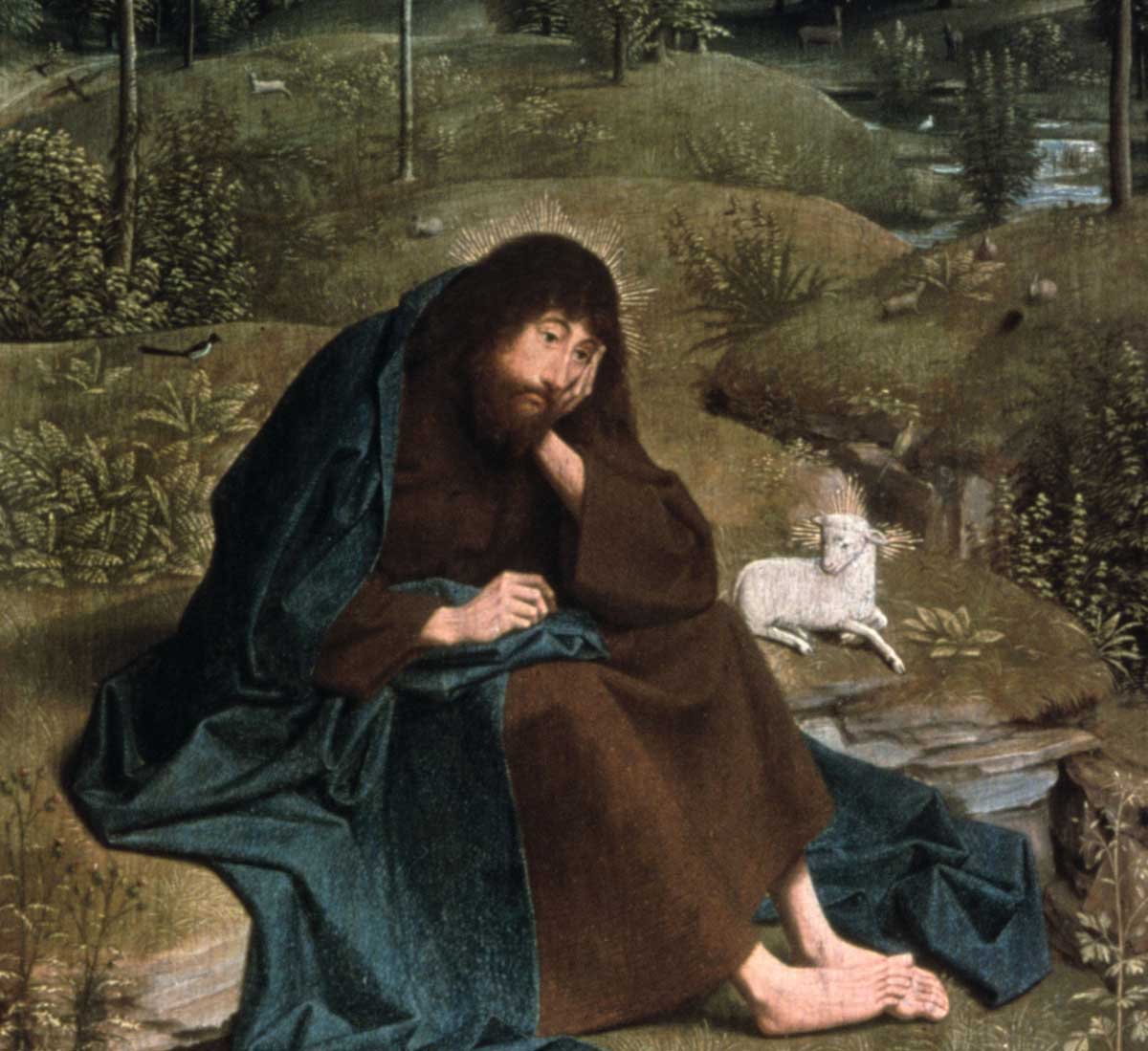Feature
The Door to Paradise
A Christian Reflection on the Attractions & Shortcomings of Buddhism
by Franklin Freeman
Buddhism is not an American, or even a Western, religion—some would say it is not a religion at all, rather a science of the mind—but it has nonetheless attracted American celebrity converts who are considered household names: Steve Jobs, Steven Segal, Oliver Stone, Sharon Stone, Tina Turner, and of course, the first celebrity convert, Richard Gere. And these are only a few.
It has also attracted people not as well known but perhaps of a deeper fiber, such as the Greek (though English-born) writer and musician Marco Pallis, and the American writers Peter Matthiessen, Robert Pirsig, and Charles R. Johnson, who are practicing Buddhists. It has also fascinated Christian monks such as Dom Aelred Graham and Thomas Merton.
Now, I am a Catholic Christian, a convert, but for a while I too was drawn to Buddhism. I was going to Mass on Sundays and sometimes praying, but I was also sometimes meditating Zen-fashion, and I felt spiritually schizophrenic. My daily life seemed to be more in tune with the tenets of Buddhism, but when I went to Mass and heard the Scriptures read and received Communion, I knew that these were things I didn't want to give up. A Zen priest had told me you could practice Zen without being a Buddhist, but I would not expect a Catholic priest to say you could practice Catholicism without being a Christian.
Now, after a lot of thought, reading, and prayer, I have settled into being a Christian, of the traditional orthodox sort. But I have learned a lot from my study of Buddhism and from contrasting it with Christianity. This essay is the fruit of that fascination.
First Longings
In his preface to Nine-Headed Dragon River: Zen Journals, 1969–1982 (1985), New Yorker writer and Zen Buddhist Peter Matthiessen wrote:
The sun glints through the pines, and the heart is pierced in a moment of beauty and strange pain, like a memory of paradise.
After that day, at the bottom of each breath, there is a hollow place that is filled with longing. We become seekers without knowing that we seek, and at first, we long for something "greater" than ourselves, something apart and far away. It is not a return to childhood, for childhood is not a truly enlightened state. Yet to seek one's own true nature is, as one Zen master has said, "a way to lead you to your long-lost home."
C. S. Lewis described the same experience in an essay titled "The Weight of Glory," only he called it "the inconsolable secret":
These things—the beauty, the memory of our own past—are good images of what we really desire; but if they are mistaken for the thing itself they turn into dumb idols, breaking the hearts of their worshippers. For they are not the thing itself; they are only the scent of a flower we have not found, the echo of a tune we have not heard, news from a country we have never yet visited. . . .
Franklin Freeman is a freelance writer living in Saco, Maine, with his wife and four children.
subscription options
Order
Print/Online Subscription
Get six issues (one year) of Touchstone PLUS full online access including pdf downloads for only $39.95. That's only $3.34 per month!
Order
Online Only
Subscription
Get a one-year full-access subscription to the Touchstone online archives for only $19.95. That's only $1.66 per month!
bulk subscriptions
Order Touchstone subscriptions in bulk and save $10 per sub! Each subscription includes 6 issues of Touchstone plus full online access to touchstonemag.com—including archives, videos, and pdf downloads of recent issues for only $29.95 each! Great for churches or study groups.
Transactions will be processed on a secure server.
more on christianity from the online archives

8.4—Fall 1995
The Demise of Biblical Preaching
Distortions of the Gospel and its Recovery by Donald G. Bloesch
more from the online archives
calling all readers
Please Donate
"There are magazines worth reading but few worth saving . . . Touchstone is just such a magazine."
—Alice von Hildebrand"Here we do not concede one square millimeter of territory to falsehood, folly, contemporary sentimentality, or fashion. We speak the truth, and let God be our judge. . . . Touchstone is the one committedly Christian conservative journal."
Support Touchstone
—Anthony Esolen, Touchstone senior editor












